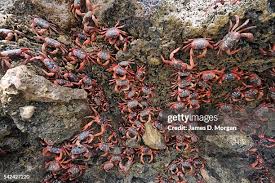Exploring the Rich Heritage of the Basque Country

Introduction
The Basque Country, located in northern Spain and southwestern France, holds a distinct identity and culture, making it a significant region in Europe. Known for its unique language, rich gastronomic traditions, and stunning landscapes, the Basque Country attracts millions of visitors each year. Understanding its significance helps appreciate the diverse cultural tapestry of Europe and the ongoing efforts to preserve its heritage.
Geography and Demographics
The Basque Country comprises three provinces in Spain: Álava, Gipuzkoa, and Biscay, and three provinces in France: Labourd, Lower Navarre, and Soule. With a population of approximately 3 million, the region showcases a mix of urban and rural landscapes, from the vibrant city of Bilbao to the serene countryside, dotted with traditional Basque farmhouses.
Language and Culture
One of the most distinguishing features of the Basque Country is its language, Euskara, which is unrelated to any other known language. This linguistic uniqueness is a cornerstone of Basque identity, prompting ongoing initiatives to promote its use in schools and public life. Cultural events such as the famous Basque festivals, which include traditional music, dance, and sports like wood chopping, exemplify the region’s commitment to preserving its heritage.
Culinary Traditions
The Basque Country is renowned for its culinary excellence, boasting several Michelin-starred restaurants. The traditional cuisine includes pintxos, small snacks usually served with drinks, showcasing local ingredients such as fresh seafood, meats, and vegetables. The region is also famous for its txakoli wine and a variety of cheeses, including Idiazabal, enhancing the Basque gastronomic experience.
Tourism and Economic Impact
Tourism plays a crucial role in the Basque economy, with visitors flocking for its rich history, cultural experiences, and natural beauty. Attractions like the Guggenheim Museum in Bilbao and the picturesque coast of San Sebastián are among the highlights. However, balancing development with heritage preservation remains a key challenge, as local authorities aim to sustain tourism without compromising the region’s cultural integrity.
Conclusion
The Basque Country is a vibrant region that exemplifies a unique blend of history, culture, and natural beauty. As tourism continues to grow, there is a pressing need to ensure that this heritage is preserved for future generations. For readers interested in exploring diverse cultures, the Basque Country represents an enriching experience, offering insights into a distinct way of life that deserves recognition and appreciation on a global scale.









